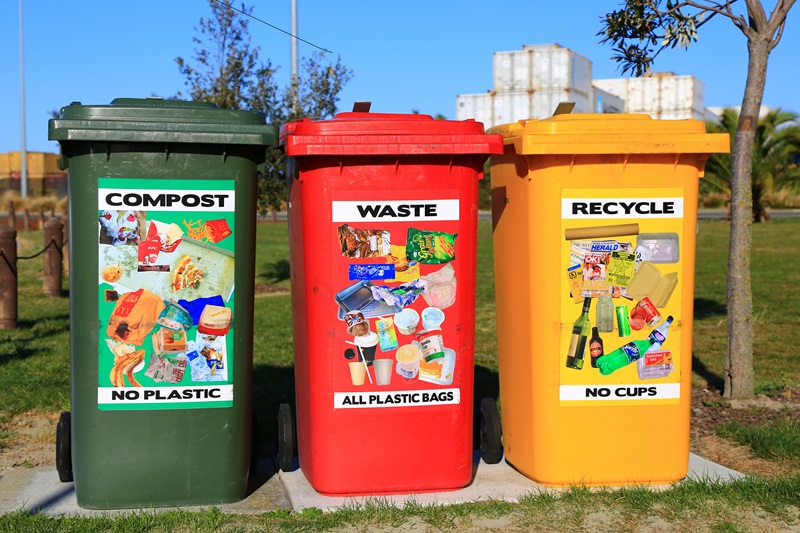London’s household waste recycling rate has stagnated for 13 years, according to data from the Department for Environment, Food & Rural Affairs.
The capital’s recycling rate, which includes waste from street bins, sweepings, parks and grounds, has been fluctuating between 32 and 34 percent since 2009/10, the second lowest of all regions in England and Wales, but the most stable.
Tower Hamlets recycles the least household waste of all local authorities in England, at approximately 18% in 2022/23, but it recycled as much as 28% in 2018.
Antony Buchan, head of the Local Authority programme under ReLondon, a statutory body, said that in a borough where 88% of households are flats and maisonettes, a transient population and high deprivation can lead to poor recycling.
Tower Hamlets is the most densely populated borough in England and has the fastest growing population nationally, with a 22% rise from 254,000 in 2011 to 310,300 in 2021.
He clarified the challenge arises because it is very difficult to deliver services where there are a high number of communal properties receiving joint service.
Buchan said: “If you live in a flat, you very often don’t have lots of internal space for segregating your recycling and you may live on the 20th floor.
“There is no direct ownership of bins and people may not live there very long so they do not have the time to build behaviours that make them good recyclers.”
Bogdan, a 27-year-old resident of Tower Hamlets, said that the recycling bin being in the underground parking lot of his building made him give up on recycling.
He added that Tower Hamlets Council has made efforts to promote recycling, such as posting them biodegradable recycling bin bags, but that is not enough to motivate him and his partner to engage.
He said: “For us it won’t have an effect for the same reason mentioned before, it’s not convenient to go downstairs to throw it away, hence we don’t do it.”
Buchan added that London is different to any other UK region because it is the only wholly urban region compared to the rest of the country, and delivering recycling in urban areas is more difficult than in rural ones.
He leads a partnership programme between the Mayor of London and the 32 boroughs to increase recycling and adopt circular economy principles.
In contrast, Bromley, a leafier borough of London, has been consistently leading the table with a 49% recycling rate in 2023, which Buchan owes to increase in garden waste and kerbside recycling services.
Local recycling is made up of dry mixed recycling (DMR) and food and garden waste, and London has one of the best DMR rates in the country.
Food and garden waste comprises 70% of bins outside the capital, but this falls to 6% in London and 2% at properties with flats.
While the low rate can be owed to London building new flats, with the percentage of flats at the last census rising from 37% to 40%, Buchan believes there is a point of ownership for citizens to engage with the services.
Knowledge about what can and can’t be recycled and the ease and motivation of doing so are key to shifting the social norm towards recycling, said Buchan.
Indeed, different boroughs have different rules about what can be recycled and the method used.
Buchan explained that soon everyone will have access to the same level of recycling services for the type of material that they can recycle, as part of a shift in waste policy.
This will develop collection and packaging reforms on three pillars, bringing simpler recycling, a deposit return scheme for single-use drinks containers and extending producer responsibility to packaging.
He added that, while recycling is good, the best for society is to produce less as part of a circular economy, an economic model which aims to extend the life cycle of products for as long as possible by reusing, recycling or refurbishing products.
A Tower Hamlets spokesperson said the council is investing £2.1m to improve recycling facilities across 2,160 blocks of flats and is working on pilot projects for flats above shops and schools.
Beyond this, they are engaging directly with residents and promoting community participation to build a recycling habit.
They said: “We need everyone in Tower Hamlets – residents, businesses, landlords and visitors alike – to do their bit by recycling properly, and together we can improve our rate.”
Councillor Cem Kemahli, lead member for planning and public space of the Royal Borough of Kensington and Chelsea, with the second lowest household waste recycling rate in London, said: “Recycling is one of the small actions anyone can take to help our environment and build a cleaner and greener borough.”
He added that the borough’s rate is lowered because of high population density, transient residents and little garden waste due to only a quarter of households having a garden.
Image credit: Nareeta Martin / Unsplash





Join the discussion